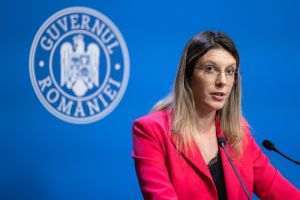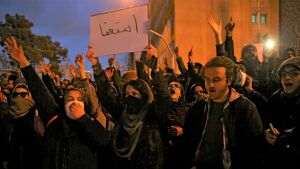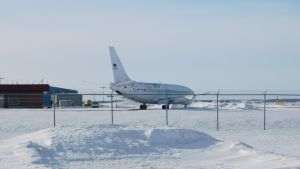Only two months have passed since the decision of the ministers of foreign affairs of the EU member states concerning the system for the allocation of the refugee quotas, but despite the fact that so little time has passed, the whole world seems to have changed around us after the attacks in Paris, Euro MP Iuliu Winkler says.
He told us: "We can go as far as to say that the attacks in Paris have been a kind of European September 11th, even though in the last ten years European societies have been shaken by tragedies with consequences just as shocking, if we were to simply think of the attacks in Madrid and London.
With or without this comparison, we definitely have several arguments that support the statement that our life has changed and that we will be affected by the consequences of this change for a long time from now on. In that regard, we can even say that the terrorists have achieved their goal. They have succeeded in inducing fear, distrust and opposition to otherness. Those things existed within our souls, and the recent events, the reactions of the authorities and of the various institutions of society do nothing but deepen the isolation of individuals who are afraid today to exercise their adherence to society".
In the opinion of Mr. Winkler, the September decision concerning the refugee quotas, which was made in a less usual manner, disregarding the opposition of four countries in Eastern Europe - Romania, Hungary, Czech Republic and Slovakia - and with Finland's abstention vote, is outright naïve, inefficient and with major difficulties in regards to its implementation: "I am not questioning its application by Romania and I find the clarification which president Iohannis made in that regard to be correct. I am only reporting that all the information from the corridors of Brussels clearly shows that according to the strategies of some, this decision is only the first step on the road to setting a permanent and mandatory relocation mechanism at the level of the EU. But this is where the crucial question arises, and whether we are talking about the relocation of some refugees within the meaning of the term as defined by international conventions or whether we are talking about a mandatory redistribution of all those coming to Europe. Therefore, we have to find a criterion for establishing the distinction between a refugee and someone who is a migrant due to economic reasons, perhaps even with the risk of setting a fluid border between the two, we have to be capable of establishing the moment when a refugee becomes an economic migrant. Does a person who is in danger in its country of origin and who arrives in Europe clearly benefiting from their refugee status get to keep their status if they refuse to be identified according to the rules in effect in the EU? Does the same person, who would potentially benefit from the European protection in a country in Eastern Europe, for instance in Romania, according to the rule of mandatory quotas, keep their international status if they turn down Romania's protection and state that they want to go to another European country, for instance to Germany or Sweden?"
It is clear that the EU has been in an exlex state for a few months now, Iuliu Winkler further says, with countries in Eastern Europe, such as Hungary, Slovenia and more recently Croatia, who are trying to comply with the rules of the Dublin convention, even though they are clearly made obsolete by the contemporary realities and other countries that make invitations that are impossible to fulfill without violating the same treaty. "This positioning outside the realm of legality has led to the antagonization of European companies and of the member states in zero-sum type of game", the European Parliament member thinks.
Iuliu Winkler says: "Globalists seem to be squaring off against localists. Things get to the point of absurd ideological labeling, with claims that the internationalist left supports refugees, and the nationalist right is against them. In order to find the solution for this dilemma which endangers the very existence of the EU we need to move from antagonistic to consensual logic. We have to escape the globalization-localization struggle by adopting the logic of a new notion. Glocalization is a term which was born recently, which designates the way of harmonizing the effects of globalization and the local characteristics. The logic of glocalization can lead us to the solution, shifting the conflict from the area of a zero-sum game to the logic of win-win situation. Glocalists believe in such a logic and so do I. The distinction that needs to be made is very simple. Every refugee that arrives in Europe needs to benefit from the protection of Christian Europe, based on values and which respects human rights and the ideals of democracy and the rule of the law. All the people who arrive in Europe migrating for economic reasons and who are exercising their rights and fundamental freedom to seek a better life for them and their families have to enter the logic of glocalization. They will be welcome to those European societies that think they need newcomers, societies that, for historic, economic or any other kinds of reasons feel they want to and are capable to integrate those who are seeking a new life and to ensure their chances of them becoming European".
Migration is nothing else but the social component of globalization, it did not start now and it will not end tomorrow, says Mr. Winkler, who said that entering the logic of glocalization and adapting our European rules, including the Dublin and Schengen agreements, could even be the step towards saving the EU as we know it today.
























































